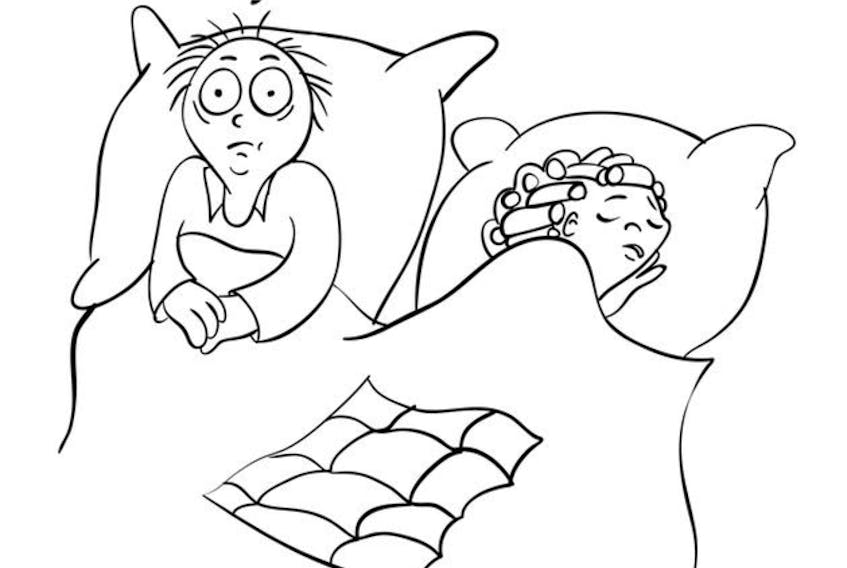Q – I've been with my boyfriend for a few years. But ever since we moved in together, he’s been messing up!
One day he’ll forget groceries, the next day he forgets the dog’s poop bags, etc.
Now, ever since COVID struck he's been having a lot of anxiety, including night terrors where he screams for hours, then gets scared that he has the virus when he wakes up with a sore throat.
I’ve been able to deal with all this, but his recent attack was just bizarre.
Around 2 a.m., he woke with another night terror. It ended at around 2:30, but in the morning I found his bowel movement in the sink as if he confused it with the toilet!
I did what was necessary but said nothing, not wanting to shame him.
At lunchtime he proposed to me! I said Yes, without a second thought but now I’m having doubts.
Also, if I bail now, I have nowhere to go because of COVID. What should I do?
A Bride or Bail?
A – Don’t bail now, you’ve been a remarkable partner and he still needs your support/encouragement for getting professional help.
Don’t start wedding plans either. This isn’t a good time for extra pressure on him from any other focus than his well-being (yours, too, based on finding out what’s causing his reaction.)
Ask his family doctor for referral to a specialist in severe anxiety and night terrors.
There may be a past trauma that has aroused his fears or some other cause, but his confusion and terror need attention as soon as possible.
This is also not the time to add new worries for yourself about where you’d go if you eventually leave.
Deal with the immediate situation.
Feedback regarding the father whose daughter asked him whether he’d cheated on her mother (July 4):
Reader 1: First, he has to decide if he’s going to be honest or not. Of course, he has to be.
You wrote: “She needs to contemplate the future from the perspective of her life experience to date.” You're right on.
This is exactly what she’s doing, and my intuition is that she’s seeing cheating going on all around (Ellie: in society). That could well be the biggest reason for the question.
She has to settle on what her expectations and those of her prospective mate are around fidelity. This could get really complicated. I kept it simple.
I married late (38), and we never discussed this, but my wife fooled around in her first marriage and carried the guilt for decades.
I fooled around lots as a single guy but simply made my own commitment to be loyal. It’s worked out well over 32 years.
Reader 2: As someone cheated on by a man whose father was a cheater, I would’ve liked to have known what I was to expect after 17 years of marriage.
My ex-husband was exactly like his cheating, cruel abusive father, despite promising me he was nothing like him.
Infidelity is a family issue. When there are children involved, it’s cruel, and the damage it does to the person being cheated on is lifelong.
Ellie: Looking to a prospective partner’s parents can be very instructive. Your husband had acknowledged his father’s flaws, so the warning was out there, even though your husband promised he’d be different.
Yours is a sad, cautionary story, but different from the conversation between a bride-to-be and her father, with no known evidence of cheating.
Reader 3: This bride-to-be has every right to ask her father if he cheated on her mother.
She needs to know if his cheating was the reason they divorced. She doesn’t need to carry this baggage into her own marriage.
The father shouldn’t ask her, “Why would a mother tell that to her child?” That’s wrongly blaming the mother.
If he cheated, he should be accountable for his bad behaviour.
The mother may’ve shared the blame for the divorce when it wasn’t her fault.
This daughter needn’t end up in therapy trying to figure out her parents’ behaviour. Since she asked the question, she obviously thinks about it and wants an honest answer.
Since he didn’t just say “No,” he didn’t cheat on her mother, it signals, “Yes”, he did.
Ellie: My response respects the daughter’s concerns about fidelity in her own relationship more than an assumption about her father.
Ellie’s tip of the day: When night terrors/bizarre behaviour occur, focus on the immediate situation and seek professional guidance.









